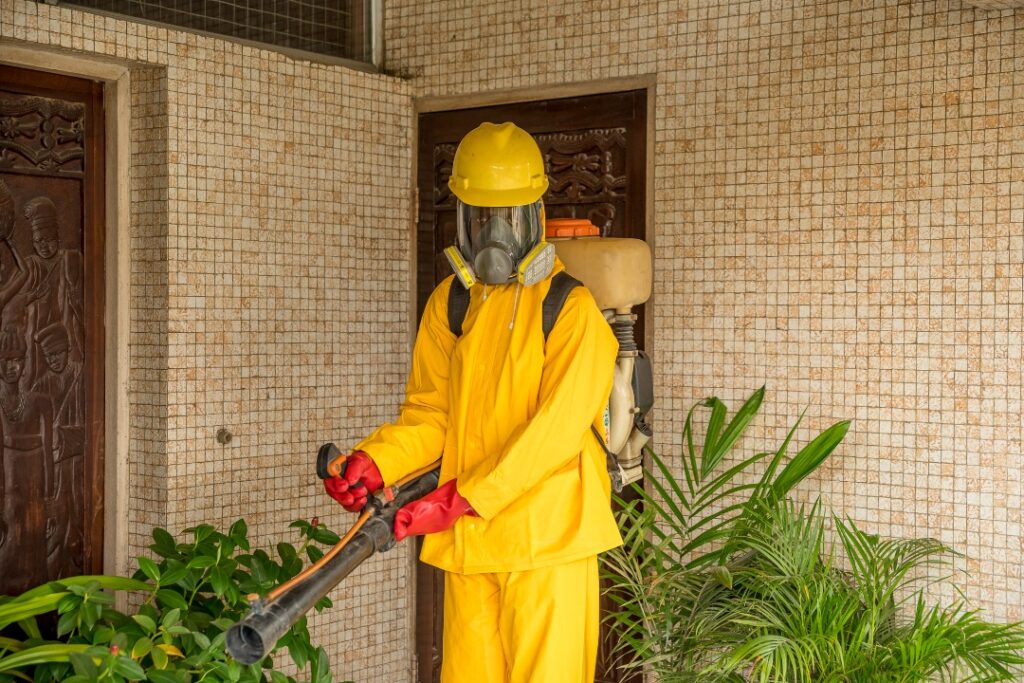WELCOME TO NIGERIA CLEANING SERVICE LTD
Fumigation & Decontamination
Fumigation & Decontamination
Bacterial spores are designed by nature to survive in the face of adverse conditions (i.e. levels of heat, radiation, desiccation, acidity, alkalinity and other chemical and physical conditions) that would rapidly kill other forms of life. It follows, therefore, that chemicals and procedures which can kill spores are necessarily highly lethal to less hardy cells, including those in human, animal and plant tissues.
The most widely used sporicides are chlorine (as in hypochlorite solutions or “bleach”) and formaldehyde, with some use being made of hydrogen peroxide and other oxidizing agents, or glutaraldehyde. At the concentrations necessary to be effective as sporicides, these are potentially hazardous to human health if handled incorrectly.
Precautions, therefore, should be taken not to get these on skin or into the eyes or, especially with the aldehydes, not to inhale them. In the case of fumigation, the work should only be carried out by trained professionals with appropriate protective clothing and breathing apparatus.
Attention is drawn to the importance of handling the concentrated liquid disinfectants referred to with caution, using gloves and aprons or overalls and goggles or eye shields to prevent contact with skin or eyes. Clean water should be at hand for immediate washing or showering in the event of an accident while handling concentrated disinfectants. All containers of disinfectants should be properly and accurately labelled as to their contents. Peroxides may be explosive under certain circumstances.
Appropriate (chemical) respirators should be worn by personnel disinfecting or fumigating closed spaces (rooms, stables, etc.) and when opening up such places to ventilate them at the end of the disinfection or fumigation procedure. Respirators should be fitted and tested by qualified personnel, and users of respirators should be trained in their correct use by qualified personnel.
Irradiation by gamma-ray or particle bombardment should only be done by properly trained persons in properly monitored facilities. In the case of UV irradiation, care should be taken to protect the eyes and not to expose the eyes or skin to direct UV light sources.

